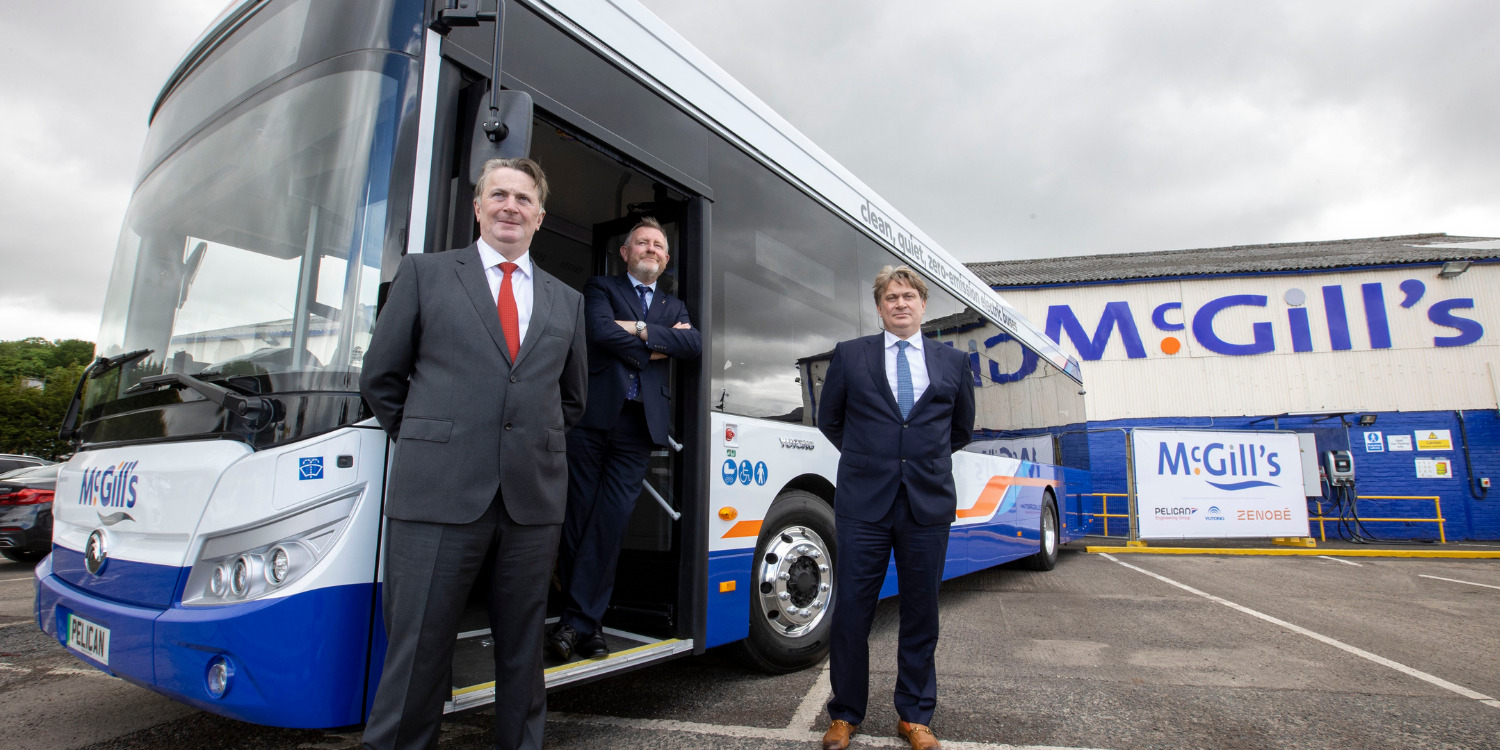SPT's Bus Franchising Plan is a £400M Burden on Taxpayers and Confiscation Raid on Private Operators
5 months ago

McGill’s Group, the UK’s largest independent bus operator, has condemned Strathclyde Partnership for Transport (SPT)’s proposed bus franchising plans, calling them an outright seizure of privately-run businesses.
Ahead of a meeting in Glasgow this Friday (February 21), SPT has said its draft Strathclyde Regional Bus Strategy (SRBS) will be published for public consultation if it is approved by its Strategy and Programmes Committee.
The strategy acknowledges many of the issues buses and passengers are facing – congestion, problems with road infrastructure and escalating operating costs – but continues to claim that greater control by politicians over bus companies is the answer to those problems.
This is despite McGill’s Group obtaining figures from industry experts that confirm SPT’s franchising wishlist as it stands would cost £400million to taxpayers each and every year to implement – far in excess of SPT’s claimed figure of £45 – 80million per annum.
Ralph Roberts, chairman of McGill’s Group, said:
“Many taxpayers will find it staggering that councillors at SPT are continuing their costly and politically motivated quest for franchising when public services and spending, particularly by local councils, is being slashed across Scotland.
“Even by starting yet another consultation run by expensive external consultants, SPT is racking up a bill for the public purse all in pursuit of what amounts to business seizure of private bus companies.
“Many scoffed when we said it would take an additional £400million per year to meet SPT’s franchising wishlist but we only need to look at Scotrail, which has cost nearly £600 million more in the first two years of nationalisation than it did under the previous private operator, to see the reality of greater political control.
“SPT’s plan would effectively see them confiscate an expensive private business and then put it up for public auction to the highest bidder. If public control is what SPT wants, they should do the honourable thing and buy back the bus companies they sold many years ago. We would not stand in their way if they believe they can deliver better bus services for the population, and want to purchase existing operators in commercially sound agreements - but they cannot steal a private business as they propose currently.”
Mr Roberts also questioned where the funding would come from to meet these proposals.
Ralph continued: “The Accounts Commission said last month that councils must be clear with communities about the scale of the financial challenge being faced, and found there had been a budget gap of £759m in Scotland in the last financial year. In Glasgow, the council has already axed 172 teaching posts, with a total of 450 to go over the next three years to save money.
“SPT is a coalition body for 12 councils in the west of Scotland - and it will be council tax payers who will ultimately foot the bill for this act of franchising folly.
“Nowhere have these politicians and officials at SPT answered why such cuts are being made by councils but they are willing to lavish £400million per year – if they can find it - to take control of the very bus services they couldn’t wait to offload the last time they had control of them. They are out of touch with reality.
“Buses across Strathclyde - already voted best in Scotland by bus users - could be even better if politicians made tough choices on matters they already control such as providing a decent road network, free from congestion, that buses could travel through reliably.”
A survey of bus users was published in the autumn by TransportFocus, an independent watchdog for transport users. Across Scotland, overall bus journey satisfaction was highest in Strathclyde at 89% where most services operate via private companies – higher than other regions including SESTrans where Lothian Buses are based.
In terms of overall satisfaction with value for money, Strathclyde again came top on 76% - eight per cent higher than Edinburgh and surrounding regions.
Mr Roberts added: “Buses in Strathclyde already enjoy the highest passenger satisfaction in Scotland – higher than regions where councils do operate their own bus companies – but this inconvenient fact appears to have been ignored by SPT.
“We know another expensive consultation is around the corner and whilst we will engage with that when it arrives, McGill’s Group will continue to prepare for any legal action that may be necessary later down the line.
“McGill’s has no ideological or dogmatic position against franchising per se, but we strongly oppose our business - built up commercially under the laws of the land, and at great expense to the owners Sandy and James Easdale - to be auctioned off to the highest bidder without any level of compensation.
“We’re very fortunate that the owners have already been willing to spend substantial funds to engage leading legal teams to scrutinise every aspect of SPT’s proposition and we’ve now got long-term plans in place on how to respond should SPT continue down this ill-thought-out road.”